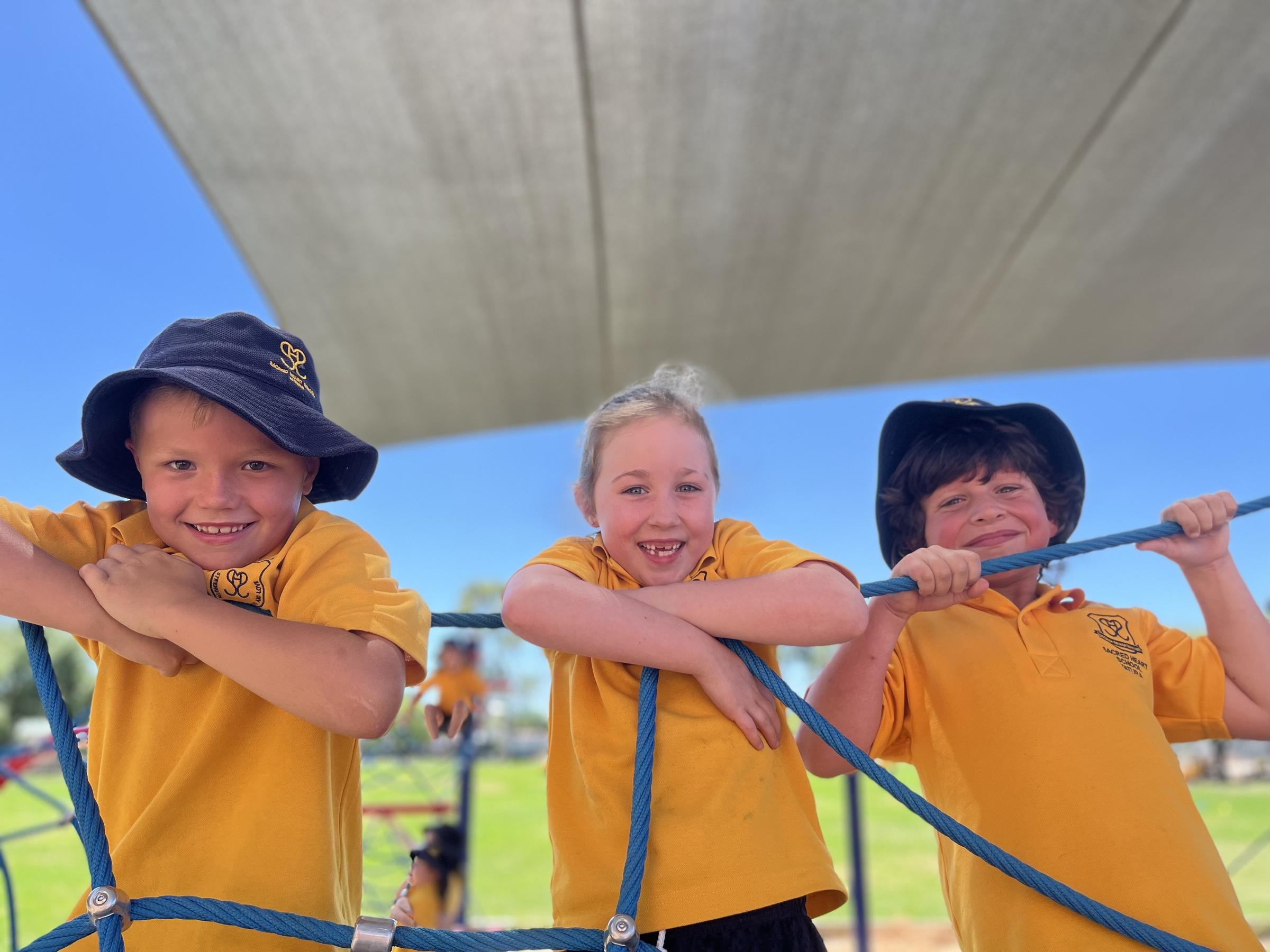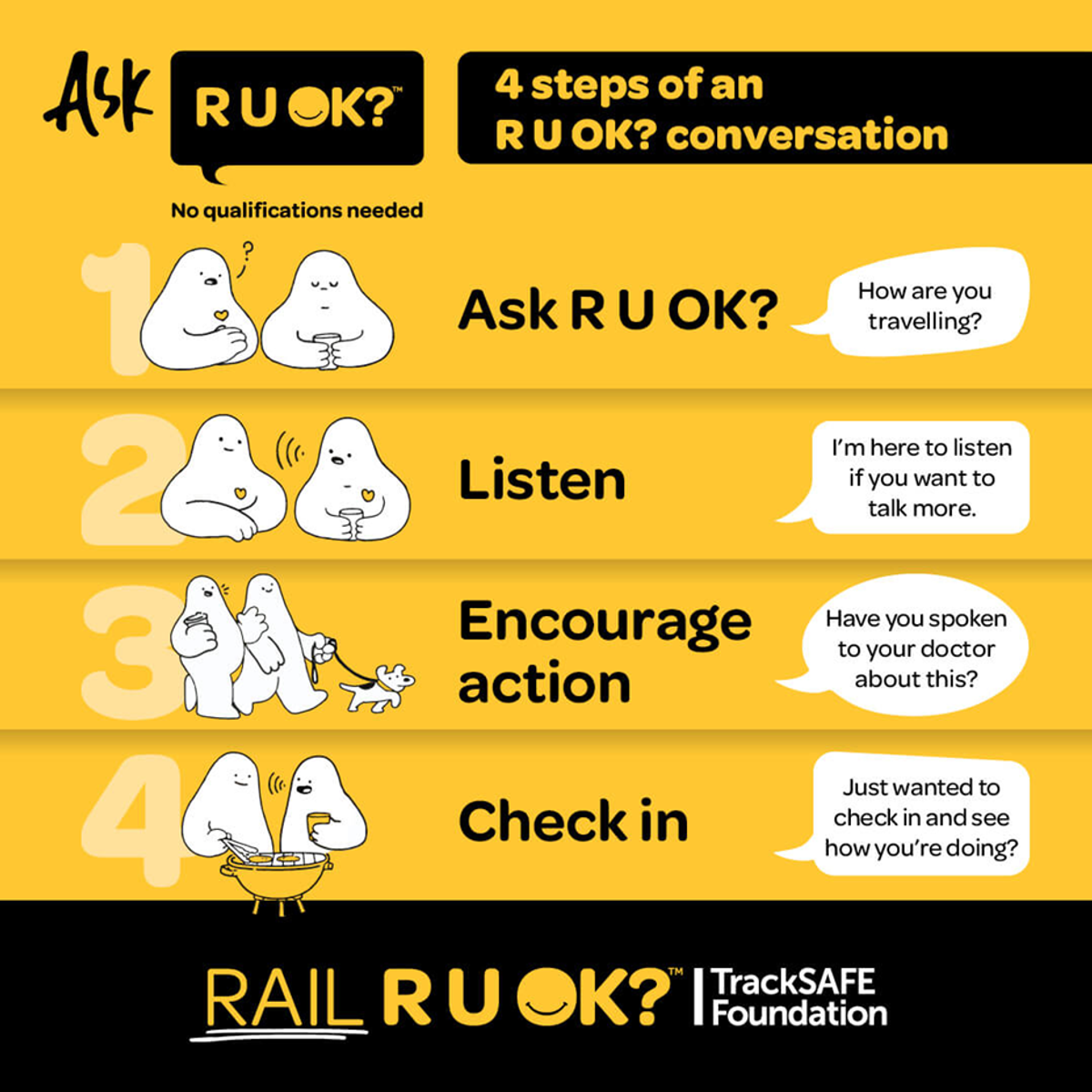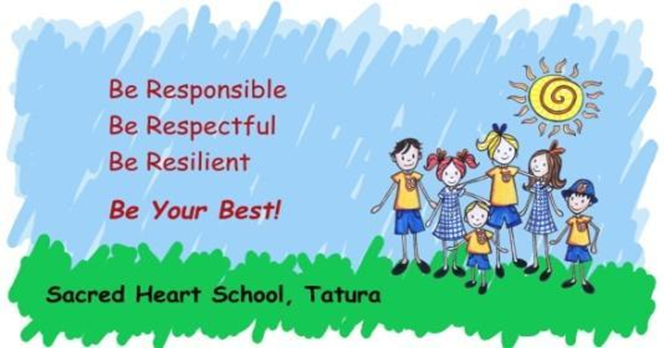Thrive & Flourish

Benevenuto!
As we come to the end of yet another term, we take some time to ask ‘RU OK?’
Now whilst this may have become an annual event in our calendars, we should be asking this question every day of the week. In the hustle and bustle of life we can somewhat become complacent and not check in on each other and take time to connect. But how do you check in on yourself? How do you recognise when things are getting out of hand? Do you recognises the signs of fatigue? Follow some simple steps, as listed in the poster below, to check in – not just on a mate, but for yourself too.
SOCIAL CONNECTIONS
Helping your child with their early social and emotional learning is important.
Just like so many other aspects of children’s development, social skills are learned skills. Early childhood teachers spend as much time teaching social and emotional skills as they do academic skills because getting along with others and self- regulation are the basis for learning. In fact, many researchers say that social and emotional activities might be the most important work children do in the early years.
Why is this important
Good social skills allow your kids to enjoy spending time with other children and adults. Children with better social skills have been found to cope better and be less likely to be stressed in social change situations such as starting at day care, early childhood centre or school. Research has also found that children who were better at sharing, listening, cooperating, and following the rules at age five were more likely to go on to succeed in school and further education later.
Top Tips to encourage early social skills
- Being kind to others. Start with the basics of empathy, thinking about and caring for others.
- Sharing equipment, space, toys and games with others.
- Taking turns playing games and playing on play equipment with others are great for practising this.
- Greetings and joining in, saying hello, goodbye, asking to join in with others. (“Hi, my name is ….”), (“Can I play too?”).
- Manners, saying please and thank you. (“Can I have the red car please?”)
- Saying sorry, knowing when you have upset or hurt someone and to say sorry.
- Asking for help, knowing who to ask and how to ask.
- Role play (pretend play) is terrific for teaching social skills.
Your key takeaway action
Try to engage in play with your child that encourages them to share, take turns and use their manners. Practise at home and incorporate it into everyday situations.
Carn the BLUES!
Liam's Joke of the Week
Q: What did the bird say when he went to the markets?
A: It's cheap cheap!!
Alla prossima settimana
Dom Poppa





